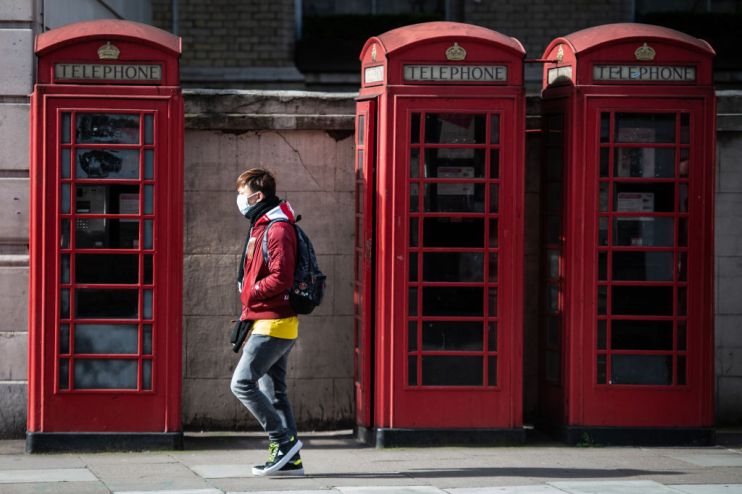UK’s vaccine programme ‘breaking link’ between Covid infections and death

The UK’s vaccination programme is beginning to break the link between Covid-19 infections and deaths, scientists studying the epidemic have said.
The latest REACT study by Imperial College London of more than 140,000 people in England shoed infections have fallen roughly two-thirds since February.
Data showed that around 0.2 per cent of England’s population had the virus between 11 and 30 March — a fall of roughly 60 per cent compared with the study’s previous findings in February, when 0.5 per cent of people were infected.
That equates to around one in 500 people, down from one in 200 people in February.
The figure halved again in people over the age of 65, with around one 1,000 testing positive for Covid in the last week of March.
Researchers also looked at how the link between infections, deaths and hospitalisations has changed across previous study rounds, and found that infections are now leading to fewer hospital admissions and deaths.
Just over 3,500 patients are currently in hospital with coronavirus across the UK, down from a peak of around 38,500 in mid-january.
Daily coronavirus-related deaths have also fallen from a record 1,361 on 19 January to just 45 yesterday.
Scientists at Imperial College London said the trend “likely reflects the impact of the vaccination programme”.
However, they noted that a downward trend in infection rates has begun to level off, likely as a result of more social interaction following the reopening of schools last month.
“Since the first substantial relaxation of lockdown in England with the opening of schools on 8 March 2021, the rate of decline of new cases has slowed considerably,” the report said.
Infections were most common in primary and early secondary school-aged children and lowest in the over-65s, which the Imperial team said was “consistent with an effect from the vaccination rollout”.
The flattening off “probably does reflect increased social mixing”, said Professor Stephen Riley, one of the authors of the study.
Professor Paul Elliott, director of the REACT programme, added: “We have seen a gratifying fall in infections since our last survey in February, with infections dropping by around 60 per cent overall. This is hugely encouraging and shows we’re headed in the right direction.
“However, in our most recent data there has been a flattening off in the infection rate with an R number now around one. This shows that we need to continue to approach the situation with caution and keep sticking to the rules.”
It comes after the UK medicines regulator yesterday recommended under-30s seek an alternative to the Astrazeneca vaccine amid concerns it could be linked to an increased risk of rare blood clots.
The announcement sparked concern that the UK’s vaccination timeline may be hit with delays, raising the potential for unvaccinated young people to push up infection rates as England emerges from lockdown over the coming months.
Speaking on BBC Radio 4’s Today programme this morning, health secretary Matt Hancock said the decision by the Medicines and Healthcare products Regulatory Agency (MHRA) was “the right approach”.
“[We need] to be as safe as possible but not to lose out on the benefits that vaccination brings, and that’s an incredibly important part of this programme.
“After the last 24 hours we now know that the vaccine works and it’s breaking the link from cases to deaths. We know the rollout’s working, we know the safety system’s working and we’re on track to meet the goal of offering [the vaccine] to all adults by the end of July.”